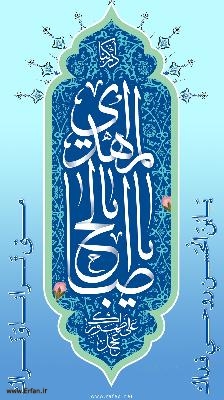
Engineer Madani: Is belief in the promised Mahdi confined to the followers of Islam, or does it exist in other religions too?
Mr. Hoshyar: In fact, this belief is not limited to the Muslims alone. In almost all religions and heavenly creeds one can find a similar belief in the future savior. The followers of these religions believe that there will come a time when the world will become corrupt and engulfed in a crisis. Evil and injustice will become the rule of the day. Disbelief will cover the entire world. At that time, the universal savior of the world will appear. With remarkable divine help he will restore the purity of faith and defeat materialism with the help of divine worship. Not only are the tidings to be found in revealed books like the Zand and Pazand, and Jamaspname of the Zoroastrians, the Torah and other Biblical books of the Jews, and the Gospel of the Christians, such information can also be seen, more or less, among the Brahmins and the Buddhists.
The followers of all religions and traditions maintain such a belief and are awaiting the appearance of such a commanding figure under the divine protection. Each tradition recognizes this figure with a different name and specific title. The Zoroastrians call him Saoshyant (meaning the 'savior of the world'); the Jews know him as the messiah, whereas the Christians regard him as the Savior Messiah. However, each group believes that this divinely ordained savior will be among them. The Zoroastrians believe he is Persian and among the followers of Zoroaster. The Jews maintain that he will be among the Children of Israel, and the follower of Moses. The Christians think he will be one among them. Muslims believe that he will be among the Hashimites and among the direct descendants of the Prophet. In Islam he has been fully introduced, whereas in other religions this is not so.
It is remarkable that all the characteristics and signs mentioned for this universal savior in other religions are applicable to the promised Mahdi, the son of Imam Hasan 'Askari. It is possible to regard him as Iranian in race because among his ancestors is the mother of the fourth Imam Zayn al-'Abidin who, as the daughter of Yazdgard, the Sassanian king, was a Persian princess. He can also be considered among the Children of Israel, since both the Hashimites and the Israelites are among the descendants of Abraham. The Hashimites are the descendants of Isma'il (Ishmael) and the Israelites are the descendants of Ishaq (Isaac). Hence, the Hashimites and the Israelites are one family. He is also connected to Christians because, according to some traditions, the mother of the present Imam was a Byzantine princess by the name of Narjis (Nargis), who is part of the miraculous story reported in some sources.
It is not appropriate to confine the deliverer of the world, the Mahdi, to one particular nation. He will actually come to fight against all discriminatory claims of racial, creedal and national distinction. Consequently, he should be regarded as the Mahdi of the whole of humanity. He is the savior and deliverer of the people who worship God. His victory is the victory of all the prophets and all the righteous ones on earth. He will be restoring the religion of Abraham, Moses, Jesus and all of the heavenly revelations, namely, Islam; he will revive the pure religion of Moses and Jesus which had foretold the prophethood of Muhammad.
Let us be clear that we have no intention of proving the existence of the promised Mahdi by referring to the ancient books, nor are we in need of doing so. Our intention is to demonstrate that the belief in the appearance of the unique savior of the world is a common religious belief, stemming from divine revelation, of which all prophets gave glad tidings. All nations are awaiting his emergence, but they have made errors in identifying him.













